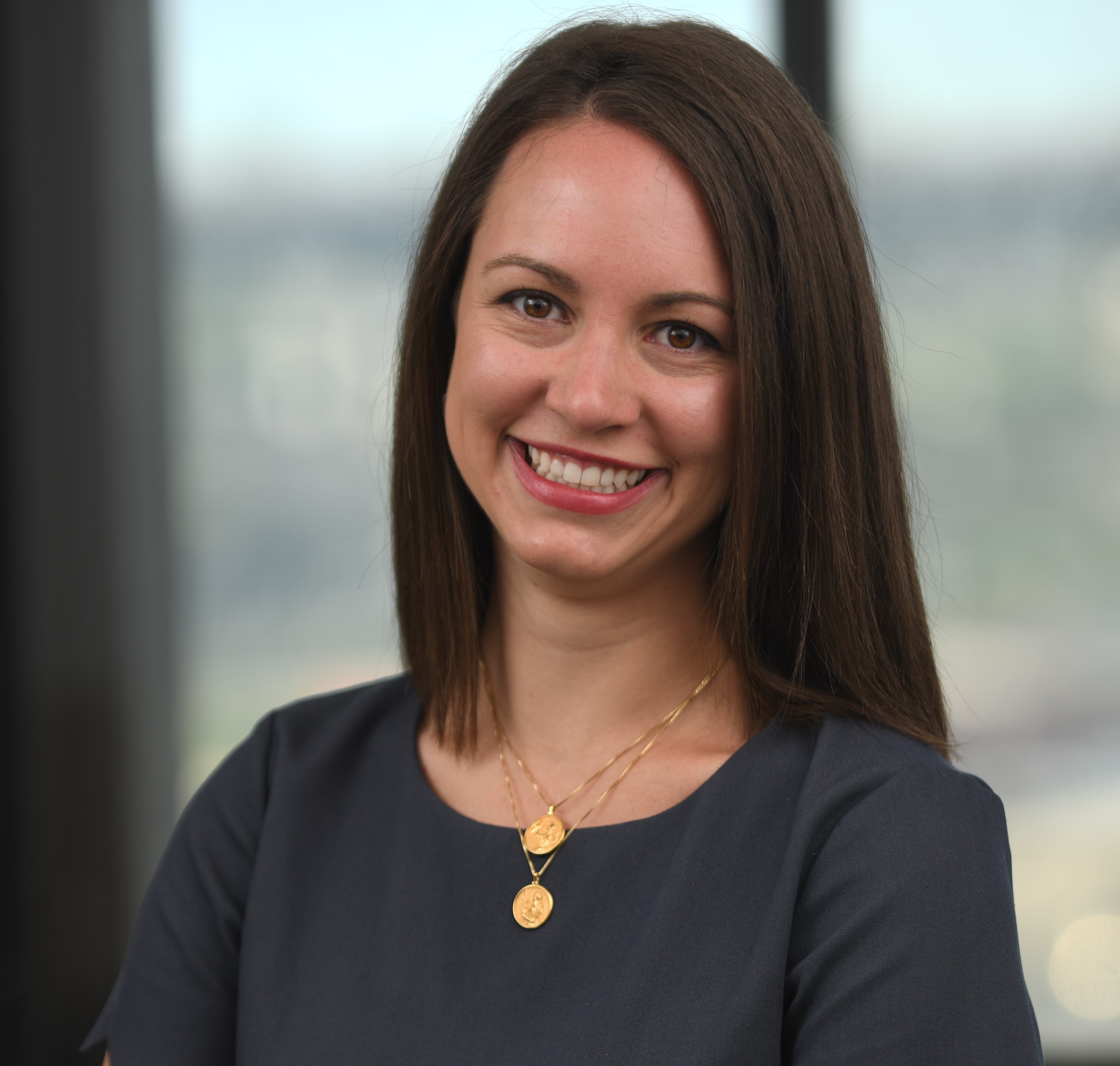Adapting to the Times: College Now Greater Cleveland Adjusts Scholarship Program for Pandemic Era
This blog is part of a new series focusing on how scholarships can be a force for greater change. Learn more about "Scholarships for Change," including tips for donors, case studies, and grant funding trends.
Founded in 1967, College Now Greater Cleveland has been adapting and evolving for over 50 years. However, for an organization that has, we thought, seen it all, the COVID-19 pandemic brought about a new challenge for College Now. Here, we are glad to share some of the insights and lessons we have learned during this unprecedented time.
College Now Greater Cleveland was founded in 1967 as a scholarship organization designed to help students in the Cleveland Metropolitan School District (CMSD) afford a college education. The organization’s founders, Robert Coplan and an anonymous donor, quickly realized that it would take more than just scholarship dollars to help prepare these students for a postsecondary journey – they didn’t even know what steps to take to begin to access education after high school!
It would, instead, take creating a culture of “college knowledge” in the CMSD to truly help students access college. This is how the concept of College Now as it is known today was created. Advisors were placed in CMSD high schools to complement guidance counselors and assist students in understanding the steps necessary to take to access college.
Our services have changed throughout the years to meet the needs of our students of all ages. We have expanded our work into five counties throughout Northeast Ohio and serve over 30,000 students each year. Our scholarships now serve both traditional college students and adults looking to restart or finish their degrees. We pair our scholarship recipients with a mentor to help them through their college journeys, and we recently served as a key partner in bringing the national initiative Say Yes to Education to Cleveland, to provide gap-closing tuition scholarships to Cleveland Metropolitan School District graduates. In short, College Now has constantly adapted its services as the needs of students, families, and the community changed.
This year has been no different. When the coronavirus pandemic hit Northeast Ohio in mid-March and resulted in the statewide shutdown, we knew that it was vital for our organization to continue serving students; that it was, in fact, more important than ever to let our students know we were there for them and would continue to support them in the ever-changing world of the pandemic.
As our work adapted to reach and serve our students during COVID-19, all our teams at College Now took time to adapt their own outreach methods, modify their programming, and truly find ways to reach students where they were.
Through virtual one-on-one and group advising, College Now’s team continues to ensure that students are prepared to pursue their postsecondary education in the fall. This includes individual virtual sessions with students who will receive a College Now or Say Yes scholarship next academic year to ensure they understand all elements of their scholarship, no matter what their fall semester will look like.
Shortly after institutions across the country made the switch to virtual learning this year, the team at College Now also began making individual check-in calls to all students in the Mentoring Program to ensure they received resources. Additionally, College Now staff continue to work virtually with adults in the community (non-traditional college-age students) who are interested in returning to school but who may be experiencing financial difficulties or loss of employment during this time. Knowing that education is a gateway to financial security, College Now staff are trained to help clients research in-demand careers and begin appropriate education pathways toward more certain futures.
Much of our work is, in essence, suited for a virtual world. Our Mentoring Program, started in 2011, is primarily an online Mentoring Program in which students and their mentors talk through an online platform about their college years. Our scholarships have always been flexible for students, and we work with them to ensure that the dollars are used to fill the gaps in funding where they are most needed, including room and board or books. But, of course, our staff has learned several lessons that will deepen our work moving forward, COVID-19 pandemic or not.
1. Diversify communication methods
Since so much contact with students is now dependent on electronic and virtual methods, our staff has found themselves having to learn new technologies and use new platforms to reach students. When, previously, an in-person meeting or quick phone call would work, advisors and staff members are now having to find students through alternate methods. We have used platforms such as Microsoft Teams, Google Classroom, GoToMeeting, and social media to reach students with important information.
While we have always known social media is important to reach students and families, it is now a more reliable way to communicate with students. Social media is key to reinforce parts of our messaging.
We have also found it vital to tailor our communications to the medium we are using. For example, the Mentoring Team hosted an Instagram takeover on College Now’s Instagram platform to share tips about online learning and mental health in an engaging and collaborative way that invited student input. Their team has also used texting for a summer melt campaign comprised of quick questions or simple reminders. To check in personally with students, phone calls were the method of choice.
Understanding different methods of communication better and how they work to reach students will continue to serve College Now in the future. We are hopeful that we will be able to invigorate our social media presence to reach more students after learning about how truly effective it could be during the pandemic.
2. Build empathy, care, and concern into all communications
Regardless of the goals of a communication – be it information gathering, or needing students to take a specific action – our team has learned how truly important it is to show care and concern in our messaging, and to be mindful of timing and frequency of messages. Too many messages when things are already stressful can make students feel overwhelmed and burdened, while waiting too long to reach out can give off the appearance of not being concerned.
Additionally, being cognizant of what is going on in the world and how it affects your students is vital. The racial injustice protests of late May and early June were an additional moment for our team to think about the importance of communication with our students and letting them know that we supported anyone affected by the movement. If possible, it also makes a world of difference to create intentional and dedicated messages designed to express concern and offer emotional support to students. The more personal a message, like a phone call, the better. This, again, lets students know that you are thinking of them and are there to support them if things are challenging.
3. Flexibility
No one can predict how things will play out with the COVID-19 pandemic. We have to be ready to adapt to the changes affecting our students as they happen. For example, we know that we will need to wait longer this year to learn where students will be matriculating in the fall, as many are making last-minute decisions or changing their minds based on how campuses are handling the COVID-19 pandemic. Students usually meet with College Now over the summer for a session in which our scholarship team helps them understand their financial aid award and financial aid package for their schools. This year, we met with many students virtually, but understood that some students were unable to have a virtual summer meeting or would be unable to make a matriculation decision until they would be on campus. We are working with our college partners more closely than ever to ensure our students are continuing to receive supports on and off (?) campus and are able to address their financial aid and other questions that College Now typically helps them with over the summer.
Additionally, students in the College Now Mentoring Program are typically expected to have three in-person meetings with their mentor each year to supplement monthly communications via our online platform. We have always been flexible with what “in-person” can mean, and are adapting even more so this year as the pandemic makes traditional in-person meetings challenging. Zoom calls, FaceTime, and even talking on the phone can be considered “in-person” meetings for students and mentors who cannot meet safely during the pandemic, and we know this flexibility will translate into future years.
Serving as a Support System
The bottom line to the lessons College Now has learned during the pandemic, and how it will shape our future work, is that we understand at a deeper level now that we are more than a source of funding for students. We are more than advisors on the college-going process. College Now is a support system for students of all ages, and a resource for students to share their concerns, their struggles, and their fears. Our ability to find the communication methods that work best for our students, and to infuse our outreach with care and concern, showed our students that we remain in their corner, even if they may feel that everything else is in chaos.


